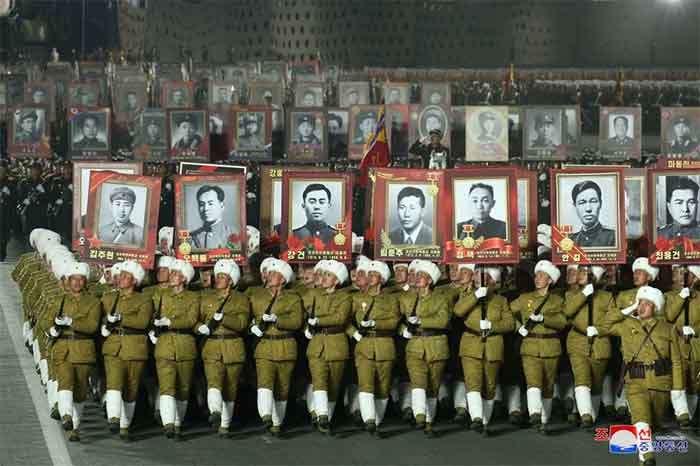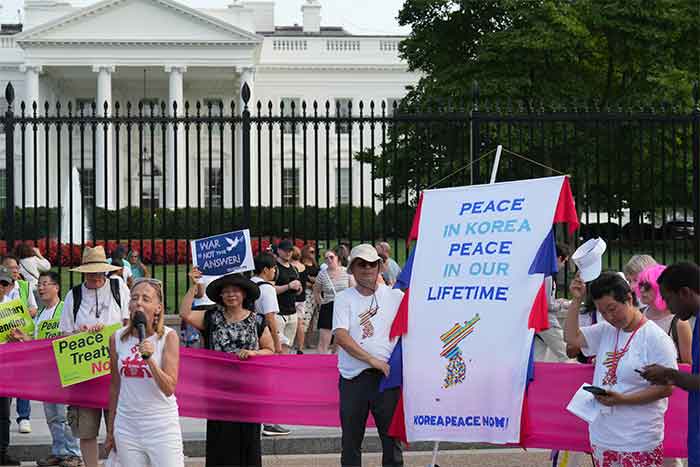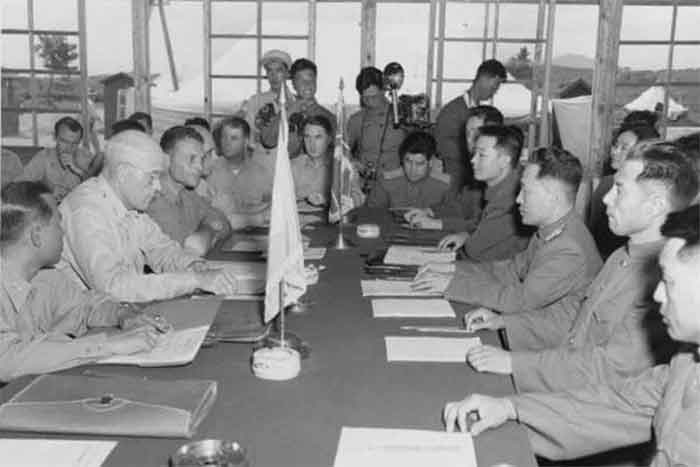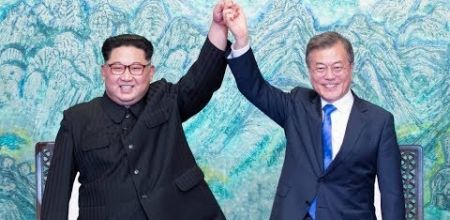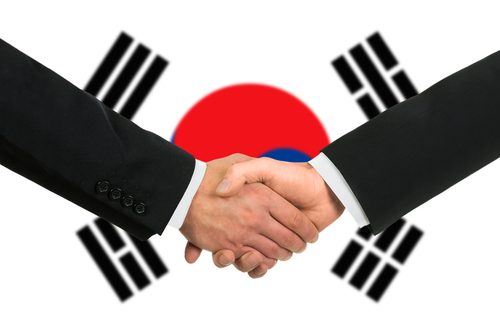
Taken pleasantly by surprise, not least because of the speed at which the joint Panmunjom Declaration has materialised, the world cannot but rejoice. In the few months from the recent Winter Olympics in South Korea when the buds of peace sprouted, amidst sporting competition between nations, both leaders of North and South Korea have planted a tree of peace, shook hands and walked together, at one point hand in hand, promising Koreans of North and South peace. For the world, if the promise is fulfilled, the elimination of another flashpoint for war.
Granted this attempt at making peace has happened before, only to not bear the desired fruits of a much longed for peace and re-unification for the Korean Peninsula. The Korean War of American aggression (1950 to 1953) though ended was without a peace agreement. Instead, the armistice signed hung like a Sword of Damocles over the Peninsula threatening all of it, not just the North.
With luck this is now the past for, the circumstances this time are markedly different.
From the south comes Moon Jae-in, a leader long an advocate of peace for Korea. From the North, Kim Jong-un, with hands much strengthened by a nuclear arsenal that has irked Washington, notably the American President who dubbed Kim the “little rocket man”. A return volley from Pyongyang found much of the world wondering what “dotard” meant. According to the dictionary it means an old person who is senile and weak. But all the name- calling notwithstanding, yesterday Kim Jong-un stepped over the line and onto South Korean territory — albeit the de-militarised zone — the first time ever by a North Korean leader.
However, those who may be euphoric are strongly cautioned. History has clearly demonstrated that peace can only be delivered from beyond the Korean Peninsula because the Korean War, though fought on the Peninsula, was between two of today’s superpowers, China and the USA. For China, it is straightforward. Peace along its border is much welcomed. Whereas previously the USA is not easily persuaded that a Korean peace is of any advantage to herself, today the idea of a denuclearised North Korea could be very persuasive. And, a denuclearised Korean Peninsula is part of the Panmunjom Declaration.
Indeed, there is cause for optimism this time around and that both Washington and Beijing may yet endorse the Declaration, unfortunately, one other factor could be a stumbling block, America’s neoconservative deep state. They are not in a hurry to embrace peace, not on the Korean Peninsula nor elsewhere.
Askiah Adam,Executive Director,International Movement for a Just World (JUST) Malaysia.

